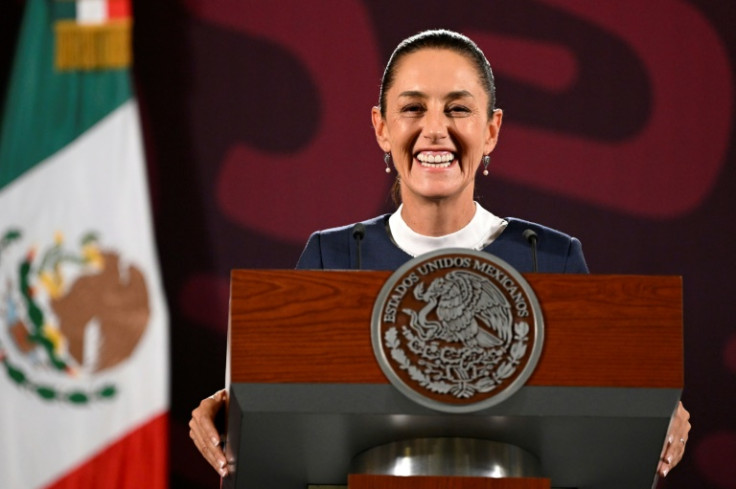
Mexican President Claudia Sheinbaum's ability to reach an agreement with President Donald Trump could serve as a model for other world leaders navigating trade disputes with the United States, analysts say.
The conversation that led to the pausing of blanket tariffs on the country was described to the Wall Street Journal as tense and lengthy, with Sheinbaum maintaining a firm stance on trade, drugs, and migration while avoiding direct confrontation with Trump. Eventually a pause was agreed after Mexico committed to send 10,000 troops to the border to help fight human and drug smuggling, especially fentanyl.
The lead-up to the February 3 call was marked by heightened tensions. Days earlier, the White House accused Mexican drug organizations of having ties to the government, a claim Sheinbaum rejected as baseless. While Canada was prepared to announce retaliatory tariffs, Sheinbaum opted to delay any countermeasures until after speaking with Trump, aiming to leave room for negotiation rather than escalation.
Sheinbaum's approach appeared to earn his respect, as he later described her as "a woman I like very much," even if Trump maintained the need to focus on stopping drug trafficking and illegal immigration.
Canada later reached a similar arrangement. Initially uncertain about what to offer, Ottawa pledged to establish a fentanyl czar and allocate $140 million to intelligence efforts targeting organized crime. Additionally, the country agreed to designate Mexican cartels as terrorist organizations.
The developments in North America have drawn attention from European leaders preparing for their own negotiations with the Trump administration. Observers noted Sheinbaum's ability to secure a compromise while maintaining Mexico's economic interests, a strategy that Canadian officials found instructive in their dealings with Washington.
Sheinbaum's approval ratings stand at 75%, reflecting, among other things, domestic support for her handling of trade negotiations. She is expected to face another round of discussions with Trump on March 4 when the tariff pause expires, but business leaders in Mexico expressed confidence in her ability to navigate further talks.
Fentanyl trafficking remains a key point of contention. Trump has vowed to take direct action against cartels, though experts note that most fentanyl smugglers are U.S. citizens using vehicles with hidden compartments to transport the drug across the border. Mexico is expected to intensify efforts against drug traffickers, potentially targeting major figures in organized crime.
It is unclear whether Trump continues to consider what aides have described as a "soft invasion" of Mexico, something that could involve U.S. troops crossing into Mexico to target cartel leaders. During his 2024 campaign, Trump suggested he'd in fact consider invading or bombing Mexico to fight drug cartels.
Back in July, Fox News's Jesse Watters asked Trump if he'd consider strikes against drug cartels operating in the country. Trump said yes, although the statement was also interpreted as a potential threat against the Mexican government in hopes of decreasing cartels' influence. "Mexico's gonna have to straighten it out really fast, or the answer is absolutely," Trump said.
© 2025 Latin Times. All rights reserved. Do not reproduce without permission.





